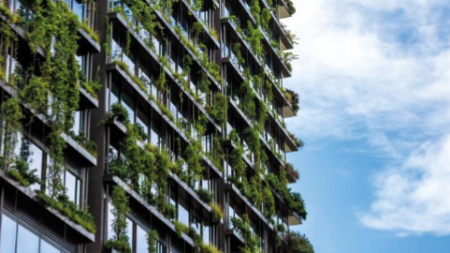Opinion - November 14, 2024
COP29: Shifting from compensation to investments


Written by Bertrand Piccard
This COP29, like the others, is decried even before it begins. It is being described as a transitional conference, of little importance, compared to the one next year in Brazil. But in fact, it is addressing the burning issue of climate finance, a big factor which needs to be redefined and mobilised. To start, we need to exceed the annual threshold of 100 billion dollars promised for years by the countries of the North to those of the South, a form of compensation to help fund the fight against a phenomenon to which Global South countries have contributed very little.
As the delegations arrived in Baku, the adoption of the agenda was already stumbling over this issue. Notably, ‘donor’ countries want to include China and the United Arab Emirates among the nations that must contribute to this fund rather than benefit from it.
Realistically, this debate should no longer be considered relevant. A few years ago, climate finance might have been seen as a form of charity, but not anymore. That's the message we need to hammer home. Climate action is no longer a low or high cost: with solutions that are both clean and profitable, it has become the investment opportunity of the century.
In most countries, renewable energy has become cheaper than fossil fuels and energy inefficiency costs a fortune every year. Not to mention the potential of the circular economy.
Let’s think about this: reusing wastewater to heat buildings, transforming waste into building materials, using the heat from data centres to heat cities, optimising water and energy management using artificial intelligence, or simply massively deploying renewable energy capacity to replace the use of fossil fuels, particularly in the countries of the South, which are mainly importers and which could thus free up resources for their local economies.
With projections exceeding 1.5°C by 2030, and six of the nine global limits exceeded - including deforestation, biodiversity loss and freshwater depletion, amongst others - we know that the cost of inaction would be still much higher. From this point of view too, we need to talk about climate action as an investment rather than a cost. Will this be enough to unite all ideologies and even convince the new tenant of the White House? In any case, the language of finance will certainly speak to him more than that of protecting nature.
The best way to prevent these conferences, and climate action in general, from being the scene of empty promises is to position this agenda as a lucrative one, since the solutions that do exist tick the double box of economic profitability and environmental well-being.
Moving away from the narrow logic of economic compensation would also make it possible, through the monitoring that accompanies any investment, to avoid financial flows from rich countries missing their targets and ending up maintaining obsolete and polluting infrastructures. This is a subject that is rarely raised publicly while still keeps being part of many discussions behind closed doors.
Even in an ‘advanced’ country like Switzerland, one wonders why colossal investments would go to widening highways rather than developing renewable capacities. On the eve of a local vote scheduled for this November, however, a universal dilemma is emerging: should we maintain old infrastructures or rethink our systems for a sustainable future; transform our habits or perpetuate the status quo?
Let's take advantage of all the solutions at hand to change the way we produce and consume. The real obstacle is not the absence of solutions, but inaction - a choice that we have the power to transform, collectively, at the COP and elsewhere.
Despite the criticism levelled at the host country of this COP, I still believe that talking about energy transition in a place where fossil fuels reign can have a positive effect. If Azerbaijan were to follow, albeit timidly, in the footsteps of the United Arab Emirates, which has invested hundreds of billions of euros in renewable energies, this summit could mark a turning point in the country's transition and provide international inspiration.
As read before in Le Temps, La Tribune, EFE Verde et La Repubblica and Forum Nachhaltig.

Written by Bertrand Piccard on November 14, 2024


